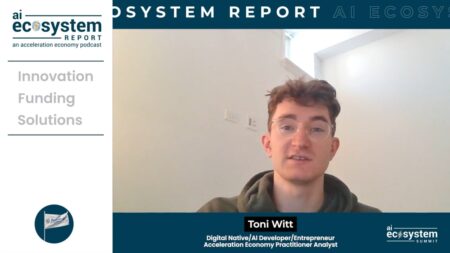If the term “persistent virtual world” is new to you, there’s a straightforward way to explain it. The physical world is persistent. It constantly changes and develops, yet all the elements that support it remain regardless of whether you interact or see them personally. A volcano in Guatemala will always be a volcano in Guatemala, even if you never have the opportunity to visit the landmark yourself.
In the same way, persistent virtual worlds evolve and expand while retaining data regarding all instances and events that have taken place within them. For example, if you log off from a game like EVE Online and return to the same space, you return to the exact point at which you left, even if other changes have taken place around you.
The Metaverse aims to build on the persistent virtual world model developed by the video game industry and create an interconnected universe — one multi-faceted, multi-location persistent virtual world. However, before we get there, there are a few myths about the technology that needs busting.
They Can’t Be Interoperable
Today, most persistent virtual worlds exist as video games. As such, by design, they are unique, developed during a period where individuality, regarding technology and content, was a core concern. The aim was to attract concealed users, not share them with competitors.
Consequently, most persistent virtual worlds are not interoperable. This is all set to change in the Metaverse. If the vision of a unified persistent virtual world comes to fruition, interoperability standards must be introduced at the initial development level. And they are.
Many organizations have agreed to work together to ensure interoperability recognizing it as a core principle of the Metaverse. Collaboration in the Metaverse will be more accessible, more commonplace, and ultimately beneficial to all parties involved.
They Are Immutable
While consistency and continuity are core concepts of persistent virtual worlds, immutability isn’t. Blockchain-based architecture provides an immutable record of events, and no doubt will feature heavily in the construction of the Metaverse. Other infrastructure can provide editing rights.
Mutable cloud tools, applications, and networks will support much of the Metaverse and enable platform moderators to edit and eradicate elements. Why is this important? Because the Metaverse goes beyond gaming with more data, more users, more social interactions, and more service variation.
As such, a fail-safe must ensure that while consistency is maintained, admins can remove damaging content. This balance will be struck when integrated, persistent virtual worlds become an everyday reality.
They Are Unsustainable
There is no denying that persistent virtual worlds are energy intensive, and ultimately, the technology boils down to notoriously power-hungry servers. While in the past, there have been discussions regarding the environmental impact of running and scaling countless servers 24/7, the Metaverse can be green.
Again, it’s about interoperability and standards. Many organizations have learned lessons from the Web 1.0 and Web 2.0 eras, where electricity from fossil-fuel-fed power stations supported most network infrastructure. Today, there is a drive to use more advanced, greener electricity-producing mechanisms and less energy-intensive architecture to drastically lower the carbon footprint.
Add to the fact that collaborating partners must adopt standards and that these concerns are being addressed at the development stage; the opportunity for a sustainable persistent world ecosystem is fast becoming a reality.
They Compromise Data Security and User Privacy
Data privacy and security are always a risk when operating online; entering a web-based persistent virtual world is no different. While there are risks, most platform owners take user data security seriously and take active measures to remain compliant.
In the Metaverse, we can expect to see this commitment grow exponentially. Again, thanks to unification, interoperability, and collaboration, the wheels are already in motion to ensure that any past mistakes regarding massive data breaches and inappropriate data use are not replicated. In many ways, the Metaverse will help to police itself because of its interconnectivity.
They Suffer From High Latency
Some existing persistent virtual worlds, like World of Warcraft, suffer from latency, slowing gameplay and forcing users to abandon gaming sessions. While not always the network’s fault —user issues can contribute, too — you can pinpoint many of the problems to incapable legacy systems.
In the Metaverse, latency shouldn’t be an issue. On the one hand, edge computing, an integral technology in developing a smooth-running Metaverse experience, provides platform developers with a powerful latency solution at the network level. Beyond this, telecom companies are preparing for the arrival of the interoperable Metaverse by expanding 5G and developing new 6G solutions. And, user devices and the availability of high-speed internet connections are improving too.









